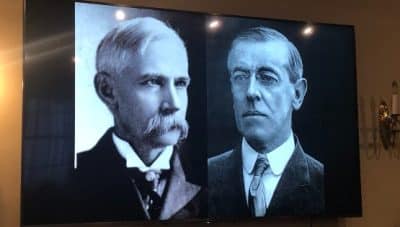
Today, most of my attention was focused on the forest floor, because it has a unique aura on rainy days after the sun has come out. The leaves seem to be more amicable, twigs break underfoot much easier and with less disruption to the songbirds carolling in their ever hopeful way, and low lying plants are vibrant, with their microscopic square cells bursting with turgor pressure. Along with the birds, twigs, and leaves, lies another living group of organisms: fungi. Fungi are peculiar. They are neither plant nor animal. These moisture loving life forms are not plants. They do not produce chlorophyll but receive their energy from organic matter in the soil or from decomposing plants. On the other hand, they are not animals, because of their lack of locomotion, as well as the way they take in nutrients. Due to the fact that fungi enjoy moist weather, rainy days are perfect for spotting mushrooms.
I focused in on one mushroom in particular today. The fungus was stationed adjacent to a flaky, decomposing log, which was floating upon leaves that could have very easily fallen from its stem. I noticed the fungal form on a passing glance, telling myself I would return to inspect it later. What I did not know was that by not giving this individual my time as soon as it caught my attention, it would be gone from my life, forever.
Once I had finished my walk through the woods, which only extended about twenty feet past the mushroom, because I decided to set my up hammock and read instead of walk, I went back to look for the mushroom. Sadly, I found the familiar scene which I left for only about half an hour, but minus one mushroom. I was devastated. I trapsed the forest floor for clues of some cloaked predator, who, in a plot to steal away the antidote for my curiosity, ate the mushroom. I combed over the leaves, inch by tedious inch, hoping my quarry would leap into view, leaving me flabbergasted at my oversight, yet relieved I still had some hair of sanity left. Instead, I was forced to abandon my search and pack up my reading materials to protect them from the impending rain storm.
Though that mushroom may not have been important at the time I first noticed it, it continues to weigh heavily on my mind; not because I did not get the chance to inspect it closely, but because I passed on the chance to inspect such a curious life form when the opportunity was offered. I, foolishly, took for granted the experience of learning more about that multicellular eukaryote and was rewarded with nothing but confusion. I know with certainty that mushroom is still sitting right where I last saw it, but I was unable to see what was directly in front of my eyes, because my mind was no longer set on mushrooms. Stimulation and stress from forces which were not of the fungi family replaced what I intended to find, erasing the possibility of ever seeing that mushroom again.
I am disheartened, as well as enlightened from this experience, because now I know the importance of treasuring an individual living organism the moment it is recognized and not taking it for granted, just because I can see it. Each of us should be captivated by what has been set here in front of us for the purpose of enjoyment, knowledge, or peace. The time we have been given here on earth is much too short to pass up humbling experiences offered in the natural world around us.










